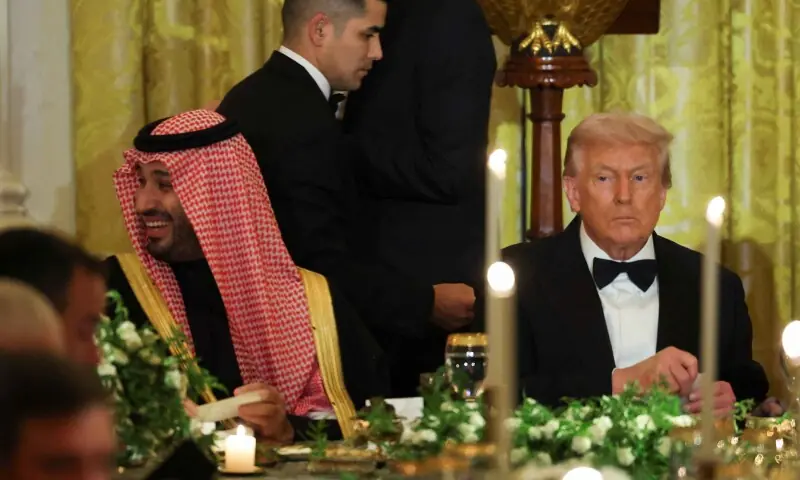Trump designates Saudi Arabia as ‘major, non-Nato ally’


US President Donald Trump on Tuesday said Saudi Arabia was being designated as a “major, non-Nato ally”.
“Tonight, I’m pleased to announce that we’re taking our military cooperation to even greater heights by formally designating Saudi Arabia as a major non-Nato ally, which is something that is very important to them,” Trump said during a formal black-tie dinner at the White House.
“And I’m just telling you now for the first time, because they wanted to keep a little secret for tonight,” Trump said of the designation, which only 19 other countries have previously received.
The status provides a US partner with military and economic privileges but does not entail security commitments. US strikes on Iranian nuclear facilities in June had made Saudi Arabia safer, Trump added.
Earlier, a White House fact sheet said the two sides signed a Strategic Defence Agreement, which “fortifies deterrence across the Middle East,” makes it easier for US defense firms to operate in the country and secures “new burden-sharing funds from Saudi Arabia to defray US costs”.
The agreement appeared to fall short of the congressionally ratified Nato-style treaty Saudi Arabia initially sought.
The White House announced Trump had approved future deliveries of F-35 fighter jets and the Saudis had agreed to purchase 300 American tanks.
The sale of the stealth fighter jets to the kingdom, which has requested to buy 48 of the advanced aircraft, would mark the first US sale of the advanced fighter jets to Riyadh, a significant policy shift.
The deal could alter the military balance in the Middle East and test Washington’s definition of maintaining what the US has termed Israel’s “qualitative military edge”.
Until now, Israel has been the only country in the Middle East to have the F-35.
The two countries also signed a joint declaration on the completion of negotiations on civil nuclear energy cooperation, which the White House said would build the legal foundation for a long-term nuclear energy partnership.
Bin Salman has been seeking a deal to unlock access to US nuclear technology and help Saudi Arabia level up with the UAE and traditional regional foe Iran.
But progress on such a nuclear pact has been difficult because the Saudis have resisted a US stipulation that would rule out enriching uranium or reprocessing spent fuel.




